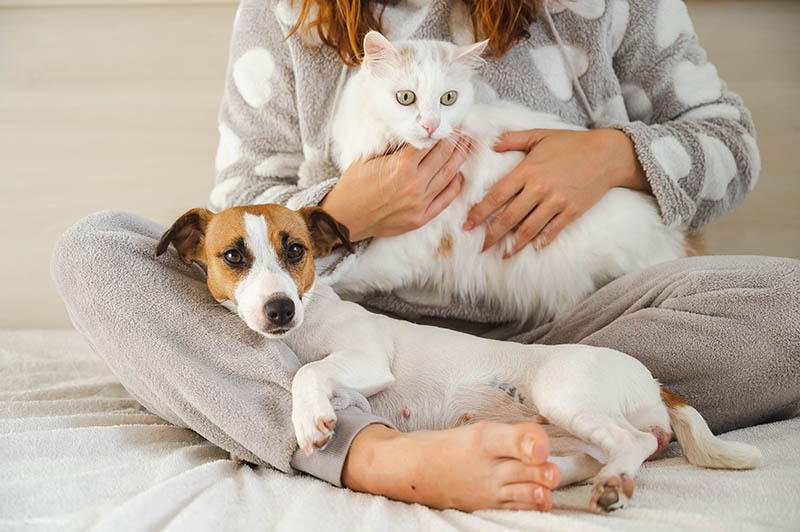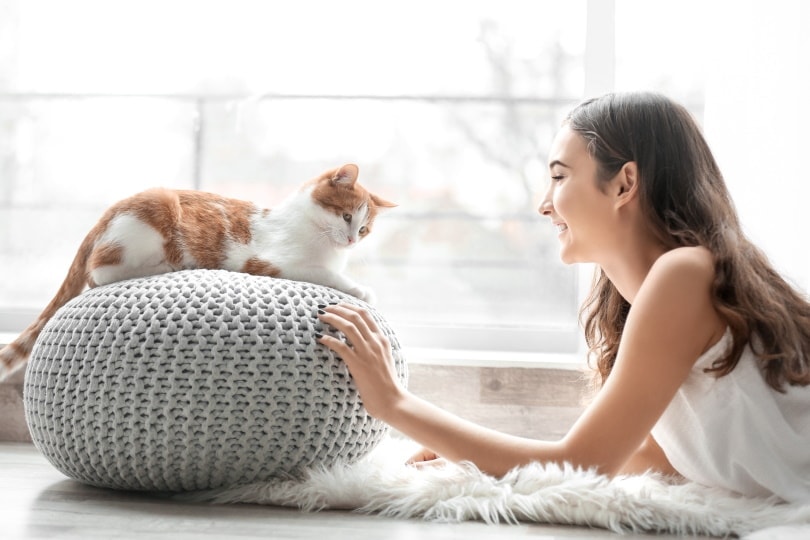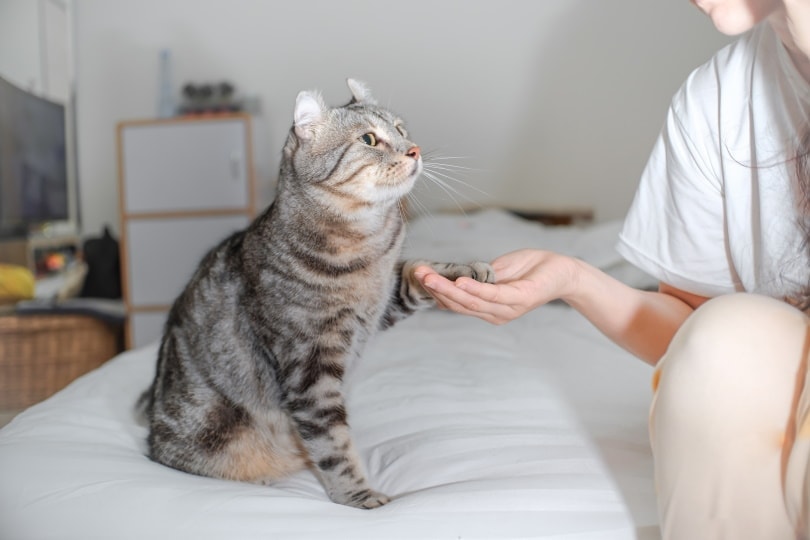Can Cats Eat Whipped Cream? Vet-Reviewed Nutrition Facts & FAQ
By Ashley Bates
Updated on
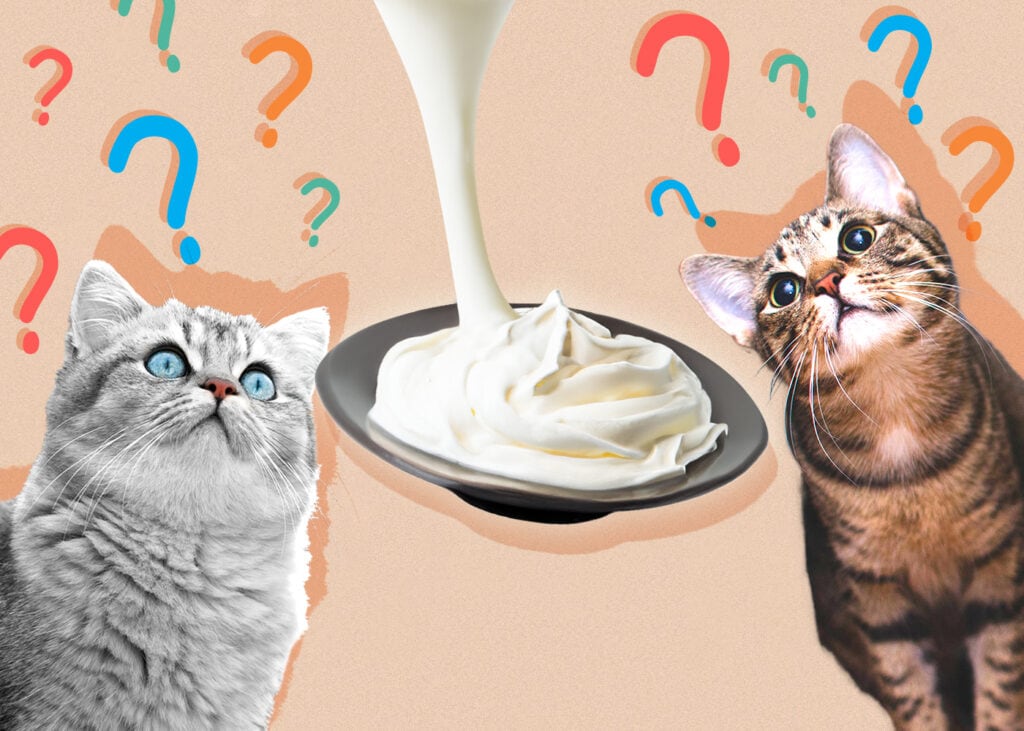
Our cats sometimes eat all sorts of weird things but then turn their noses up at a seafood feast—we have no explanations! So, if your cat has taken a new interest in your Thanksgiving pie topper, you might wonder if cats can eat whipped cream.
We’ll give it to you straight—whipped cream is non-toxic for felines but is unhealthy for your cat. It won’t kill them, but it is very likely to cause them gastrointestinal distress. Let’s delve into the details.
Whipped Cream Nutrition Facts
- Calories: 10
- Total Fat: 1 g
- Cholesterol: 2.5 mg
- Carbohydrates: 0.5 g
- Protein: 0 g
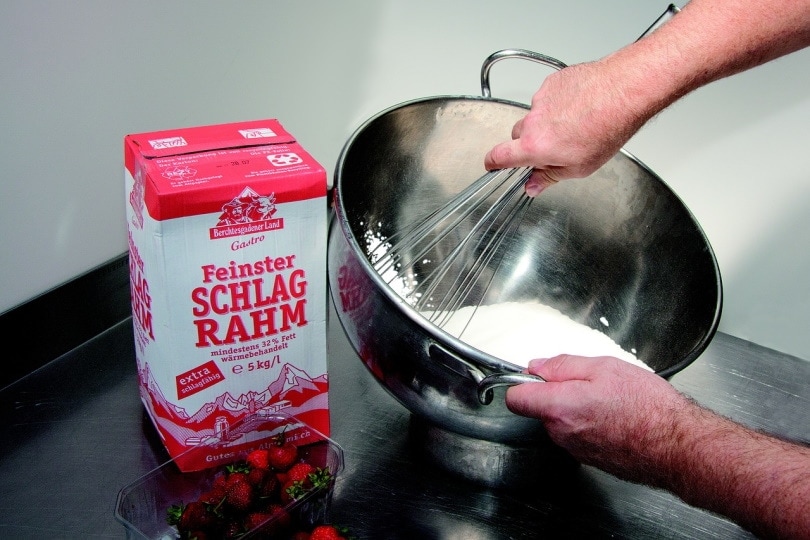
Why Cats Shouldn’t Eat Whipped Cream
Human-made food items like whipped cream aren’t smart snack options for your cat. Whipped cream is full of dairy and many brands have added sugar and artificial vanilla flavoring—two ingredients that have no nutritional benefit for your cat. In fact, eating dairy can cause all sorts of digestive issues.
Dairy Downfalls
For years, you’ve seen cartoons and depictions of cats drinking out of a milk saucer. We know—it’s misleading. It might seem perfectly fine and even healthy for your cat to eat dairy. However, studies show that this is not the case.
Dairy contains lactose, a naturally occurring sugar that adult cats cannot digest. By nature, most cats are lactose intolerant. The only time your cat needs milk is when they are nursing as kittens, and then that would be either queen milk or a kitten replacement formula with a similar nutritional content. This would certainly not be dairy.
Artificial Flavorings
Many whipped creams contain artificial vanilla flavoring. While natural vanilla is safe for cats, most artificial extracts contain alcohol and are a no-no for our furry friends.
Sugar Impacts
Humans often eat too much sugar, but our pets really don’t tolerate it well. It causes all sorts of issues and leads to obesity, a predisposing factor for diabetes, cancer, arthritis, and other health problems in cats. Sugar isn’t a natural part of the feline diet, and it should stay that way.
Cats Can’t Taste Sweets
Did you read that right? It’s true. Since cats are obligate carnivores, their taste palette has no use for sweet flavors, as it isn’t in their natural diet. Because of this, sweets aren’t on their radar.
If you think about it, wild cats are predatory animals. They spend their time hunting fresh prey, obtaining nutrients and much of their moisture from the animal. Since all they eat is animal flesh, organs, and muscle, they never acquired a sense of sweetness in their taste palette.
Importance of a Healthy Feline Diet
Cats have a very different diet from humans and dogs. Making sure your pets have a species-friendly diet plan is of utmost importance. Cats require protein and amino acids that they acquire from animal sources.
If cats eat a lot of “junk food” that isn’t designed for them, it can cause a lot of digestion issues, weight gain, and even severe health issues over time. Animal nutritionists crafted recipes and products designed for cats to meet all the cat’s needs.
So, even though a little lick of whipped cream won’t hurt your cat, repeatedly snacking will. Instead, try a few handy snack options that are also healthy and cat-approved.
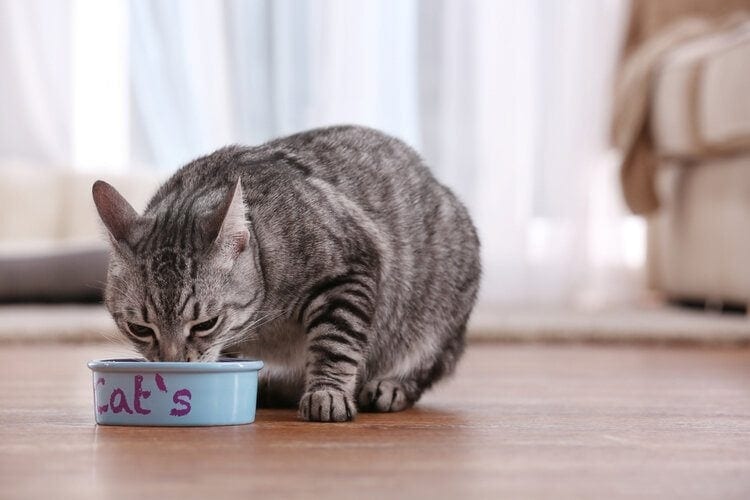
Alternative Snacks for Cats
If you want a few awesome options to keep on hand for your cat, we have some much better alternatives to whipped cream.
Boiled lean meat
Your cat will never turn down a delicious piece of meat. You can offer them almost any type of meat as long as it is cooked without oils and seasoning-free.
Dehydrated meat strips
Dehydrating meat at home may sound time-consuming, but it’s actually quite easy. You can use a dehydrator or use your oven to dry out strips of beef or chicken. While there are some cases where additional sodium might benefit cats with certain diseases, as a general rule, it is best to avoid offering dehydrated meats with excessive salt additions.
Commercial treats
You could always leave it to the pet professionals and buy commercial treats for your feline to enjoy. You can find them available on the market in various tastes, textures, and brands
Broths
Most cats enjoy lapping up delicious animal-based broths. Plus, cats don’t generally get enough moisture in their diet, so it’s a good way to promote hydration. Just ensure there is no onion or garlic used in the preparation.
Cats & Whipped Cream: Final Thoughts
It’s quite tempting to share our goodies with the furry friends we love, but it simply doesn’t mesh with their digestive systems. Cats benefit most from species-specific food and drink. Whipped cream is among the long list of non-cat items.
Also, remember that cats can’t even taste sweets. So, not even in a guilty pleasure sort of way, is whipped cream good for your feline.
See also:
- Can Cats Drink Puppuccinos (Pup Cup) from Starbucks?
- Can Cats Drink Milk? Vet-Reviewed Facts, Risks & Precautions
Featured Image Credit: HomeMaker, Pixabay




